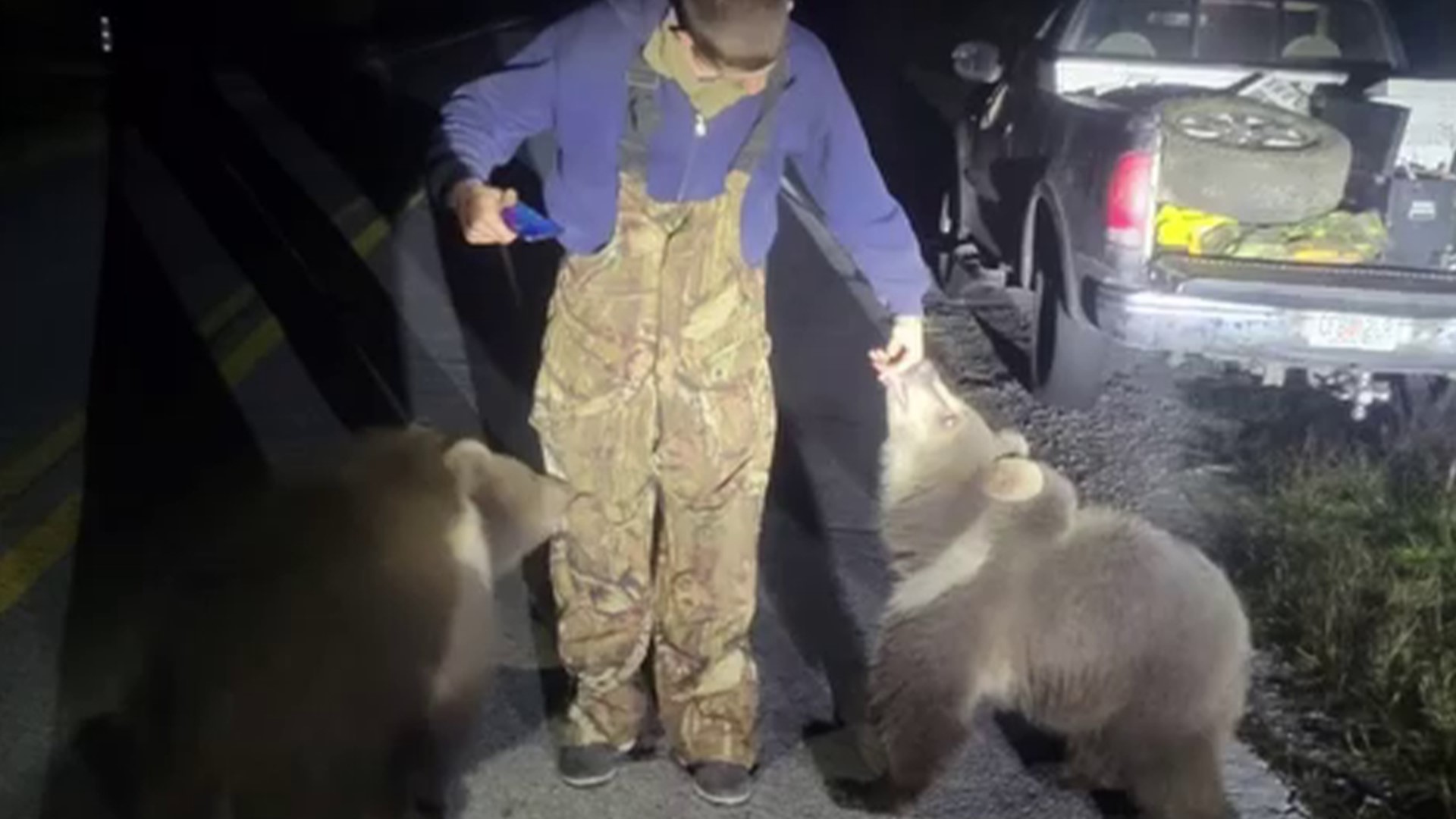OKALOOSA COUNTY, Fla. — A Florida sheriff's deputy and a concerned citizen now have a story for the ages after two bear cubs were spotted on the side of the road in the early morning hours of Dec. 5.
The Okaloosa County Sheriff's Office shared video of the bizarre encounter on Wednesday after the Florida Fish and Wildlife Conservation Commission (FWC) concluded its investigation into how the bears got there to begin with — after all, these bears had no business being in Florida.
That's because these weren't your typical Florida black bears.
According to the sheriff's office, these bears were more than 3,600 miles from their usual home — Alaska.
"They are apparently Kodiak cubs, a unique subspecies of the brown or grizzly bears, although Kodiaks are larger," the sheriff's office wrote in a Facebook post. "It was determined the bears had escaped from an inadequate enclosure at a residence on Old River Road where a self-proclaimed bear trainer lives."
Body camera footage shows a deputy arriving on scene where a man driving by at around 3:30 in the morning was waiting, along with two bear cubs, who appeared curious and friendly.
"Where in the world?" the deputy asks as she exits her cruiser. You can hear the bewilderment in her voice.
An unidentified man in the video who called the sheriff's office said he saw the bears on the side of the road. In the video, he was able to determine that they weren't black bears as he guessed whether they were brown or grizzly bears.
FWC officers eventually arrived and the bears were "transported to a secure location for safekeeping."
The "self-proclaimed bear trainer" is now facing "various Florida wildlife violations related to the findings of the FWC investigation," the sheriff's office said.
About Kodiak Bears
Kodiak bears are the largest bears in the world, according to the Alaska Department of Fish and Game. Males can stand over 10 feet tall on his hind legs and weigh up to 1,500 pounds.
They live "exclusively" on the islands in the Kodiak Archipelago "and have been isolated from other bears for about 12,000 years."
There are about 3,500 Kodiak bears, and wildlife experts describe their population as "healthy and productive."

